If you believe the famous words of Hippocrates, "we are what we eat" (and we have absolutely no reason not to believe the founder of ancient medicine), then culinary lifehacks are the most important for humanity, because they directly affect us.
Many thousands of years ago, a person first tried the heat treatment of food, and since then the entire history of cooking has been nothing more than a chain of hacks and ideas of varying degrees of usefulness and sophistication. Today, handwritten collections of recipes are a thing of the past, but it is small kitchen tips that, by and large, give cooking a unique personality. So here's another collection of such tips from netizens around the world.
More info: Reddit
#1
Wash dishes as you go. Your dish needs to sautee for 5 minutes? That's time to wash a few dishes, throw away trash, or put away ingredients. Nobody wants to clean the kitchen after eating a filling meal, so just do it as you cook.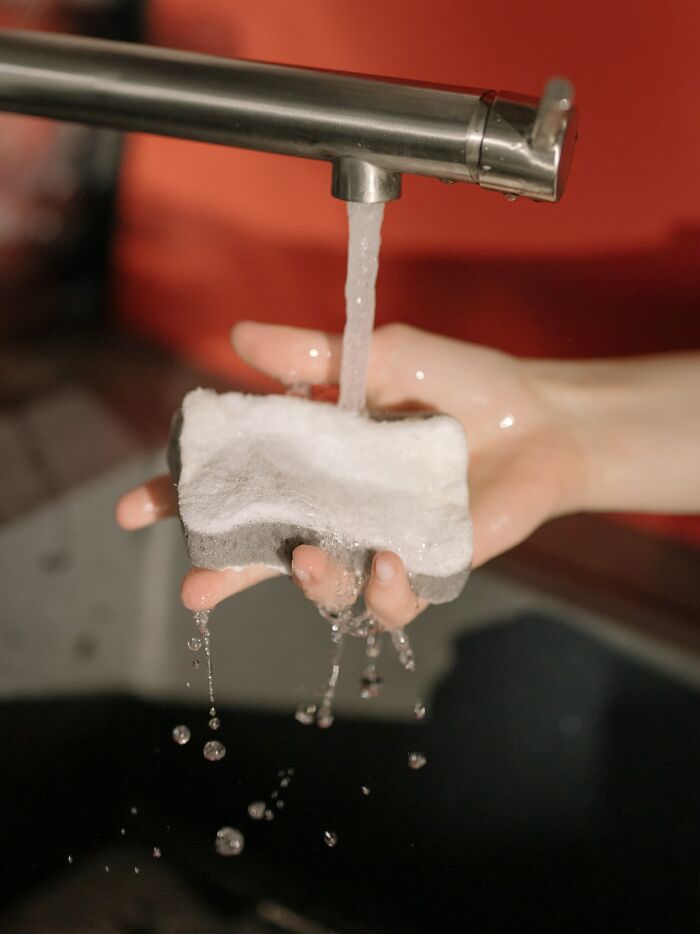
Image credits: VVillyD
#2
When I'm doing prep I like to have a 'trash bowl' in easy reach on the counter. For peel, skin, bones etc.Saves constantly shuttling to the bin
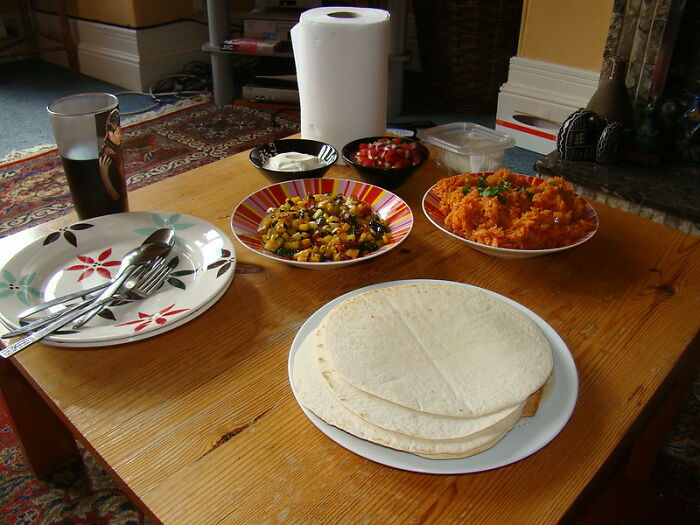
Image credits: Yshnev
#3
Learn cooking techniques instead of recipes.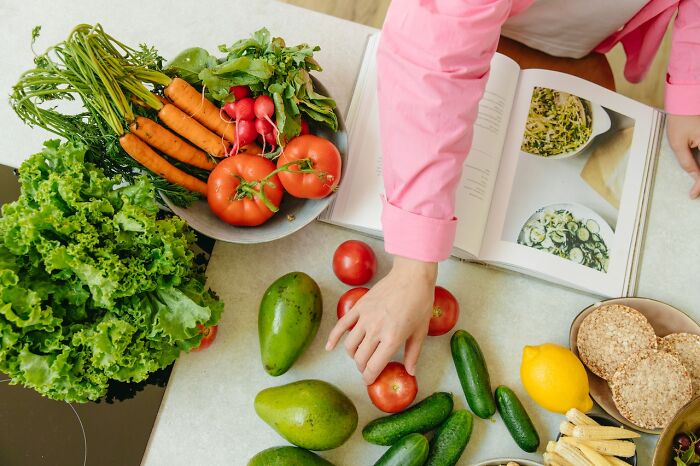
Image credits: GeraldSparks
The original thread appeared on Reddit a few years ago, and has since garnered over 5.3K upvotes and around 3.7K of all kinds of comments. On the other hand, in such threads, the most important thing is not the number of comments, but their quality, because, you see, a hundred banal and obvious culinary tips will never replace two or three really unexpected and therefore more wholesome ones.
#4
A falling knife has no handle. Don't try to catch it - just get out of the way.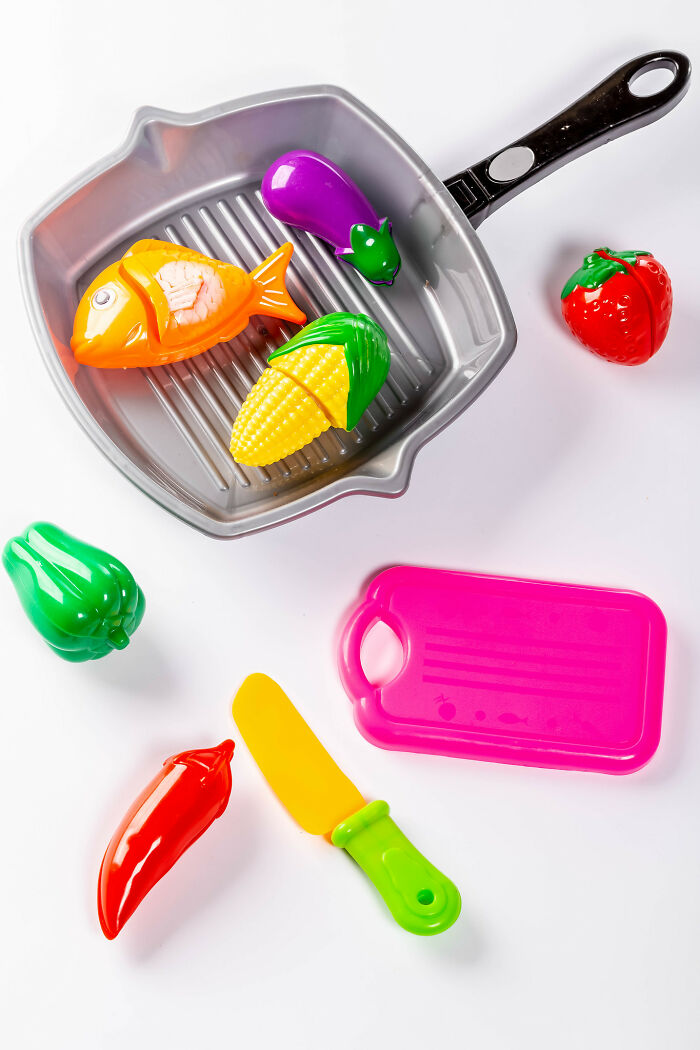
Image credits: palad
#5
A blunt knife is more dangerous than a sharp knife.
Image credits: Lympwing2
#6
1. Any meat you are cooking, whether it is a steak or a chicken breast or some delicate shrimp, can almost ALWAYS benefit from being taken out of the fridge a few hours in advance and allowed to come to room temperature before cooking. No, it will NOT spoil in a few hours.2. Do not add oil to your pasta water to keep it from sticking together. Just stir it. Adding oil causes the sauce you add later to slide off instead of sticking.
3. Ever wonder why the chicken you make in your stir-fry/sesame chicken/curry dish isn't as soft and tender as it is in the restaurant? They use a technique called "velveting" - which is basically poaching the chicken in water and oil after marinading it in ~~milk~~ egg whites, wine and cornstarch. It's easy to do! Google can tell you how.
4. For delicate seafood (shrimp, lobster, scallops), I can almost guarantee you are overcooking it. Remove them from the heat when they still have a hint of translucency to them - NOT after they've turned white. They will finish cooking from the latent heat and will be tender, not rubbery.
5. On the subject of rubbery seafood - soak squid overnight in buttermilk before making calamari and your appetizer will melt in your mouth every time.
6. Trying to suspend fruit, nuts or something else in a cake or dough? Be sure to coat them in flour before adding them to the batter to prevent them from sinking to the bottom.
7. Add a pinch of cinnamon. Seriously. I don't care what you're making. Chili? Seafood chowder? Meatloaf? Fettuccine Alfredo? Add a pinch of cinnamon. You're welcome.
EDIT: Fixed velveting technique to include egg whites, not milk. Also, if you aren't comfortable leaving meat or seafood out for a few hours, then don't. I maintain, however, that you will be just fine. But hey, all I have going for me is a B.S. in biology with a concentration in disease pathology and an M.S. in Applied Nutrition. Grain of salt, I guess.
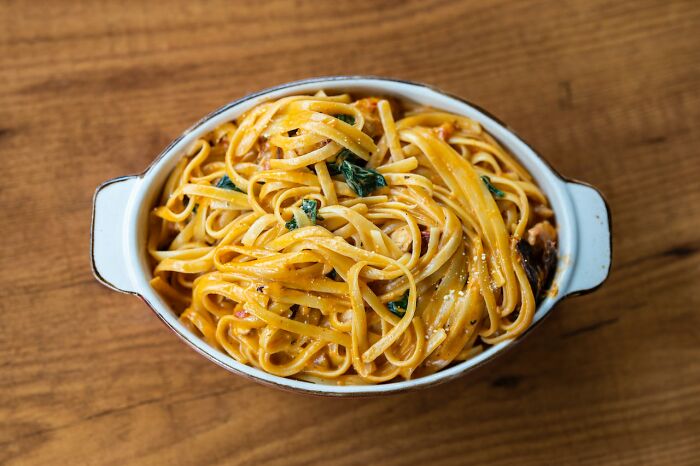
Image credits: Gabranthael
Some home cooks are rather dismissive of such collections of kitchen tips, believing that a real chef should come up with their 'signature style behind the stove' on their own. On the other hand, it is the little things that shape a person, and sometimes even become a game changer. Still don't believe it? Then here's a question for you - how important is the way how you salt your food?
If you say that it is important not how, but how much salt and when to add it, you will not be entirely right. In the end, a unique manner of salting meat brought worldwide popularity to one of the most famous chefs of our time - Nusret Gökçe, nicknamed 'Salt Bae'. Yes, that very YouTube guy who has since opened a chain of meat restaurants here, there and everywhere. So the little things matter too...
#7
Learned this from Gordon Ramsay. Always keep a towel hanging out of your pocket. Getting dirty is inevitable, so having quick access is really useful.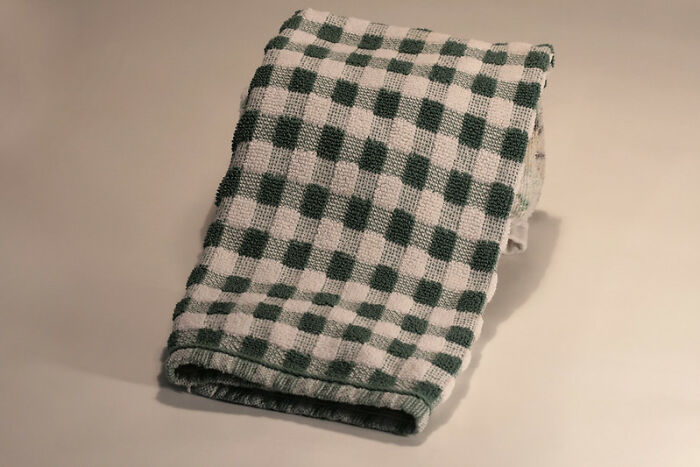
Image credits: CoconutWill
#8
Let the pan get hot before sauteeing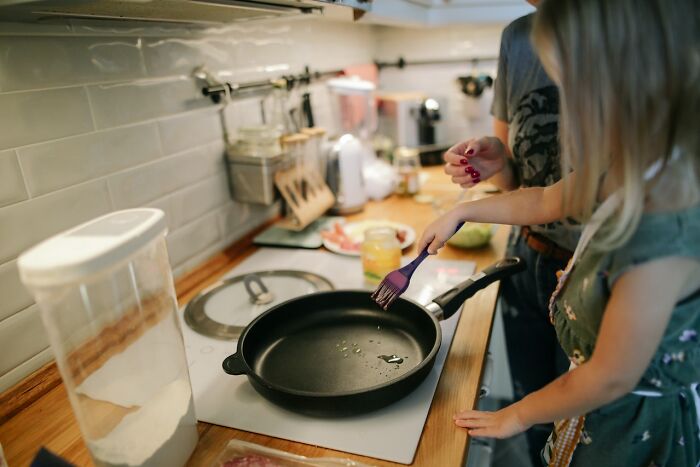
Image credits: anon
#9
There is a concept called Mise en Place. Essentially it means get everything ready before you start. Instead of scrambling to measure out four different seasonings or get olive oil out of your pantry while something is burning on the stove, get everything out and measured beforehand.Also, get a kitchen scale and start following baking recipes that are written by weight. A recipe with weights usually mean its from a serious baker and not some mommy/daddy blogger. Weights are better because my cup of flour will be different than yours but 100 g is always 100 g
Edit: by “my cup being different from your cup” I am not referring to the physical cup. I am referring to the resulting quantity of the ingredient. Is it packed tightly or loosely? Is it heaping slightly or is it under filled. Scoop a cup of sugar and tap it a few times. It’ll settle a little bit and you’ll be able to fit more in the cup.
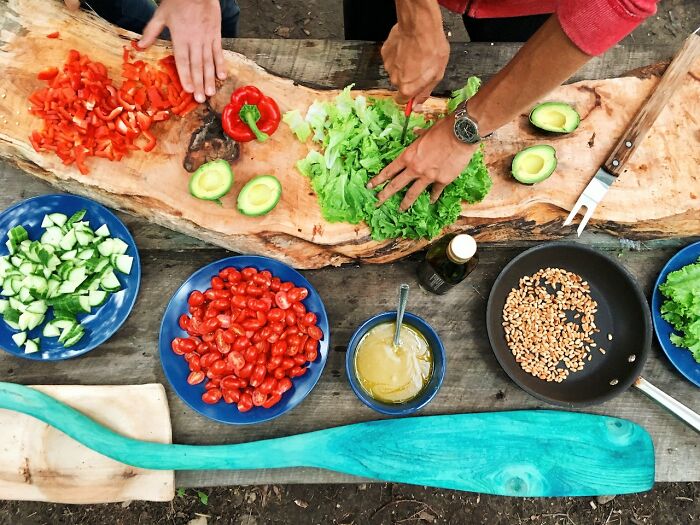
Image credits: theWet_Bandits
"Sometimes kitchen hacks come to us not from other chefs, but from a completely unexpected side - for example, from food manufacturers," says Roman Sardarian, a chef from Ukraine, with whom Bored Panda got in touch for a comment. "For example, here's a little secret that I personally use often when cooking pasta, even at home. For example, Barilla, an Italian manufacturer, came up with a true great idea a few years ago to help everyone who cooks pasta."
"After all, what is the most important thing when you cook pasta? Of course, proper timing. And so, the company's marketers have posted a special playlist on Spotify, where the songs last exactly as long as necessary in order to boil the type you need to perfect condition. Just turn on the desired track and when it finishes - voila, everything is ready! In my opinion, it's nothing but brilliant. I myself often use this 'musical timer' - even when I cook pasta from other manufacturers. Perhaps this secret will come in handy for someone..." Roman says.
#10
Bacon fat should never be wasted.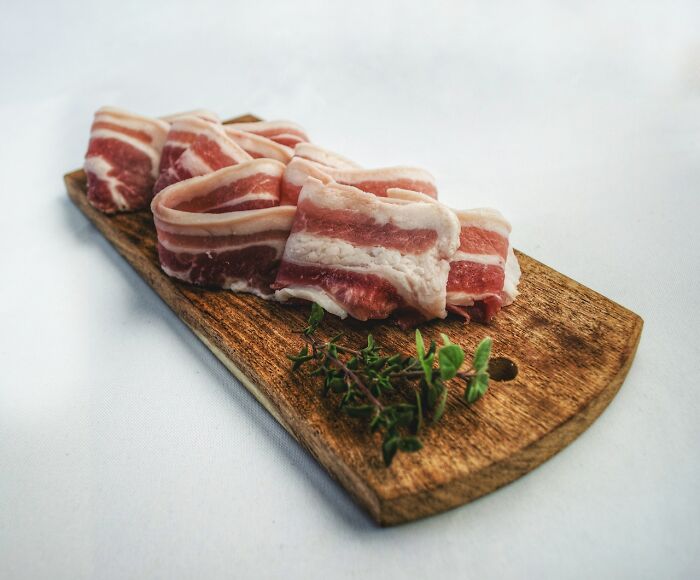
Image credits: cjoyful
#11
Here's one of my favorite tips I learned.Learn to cook one meal great, so that you can do it without looking at a recipe and can pull it off flawlessly every time.
That's your go to meal.
Mine is pan seared salmon home made rice pilaf and a baby spinach salad with just olive oil, salt, pepper, fresh lemon juice and feta cheese mixed in.
If you're a single guy and can cook a girl dinner, you're light years ahead of most guys since many can't even boil water now a days.
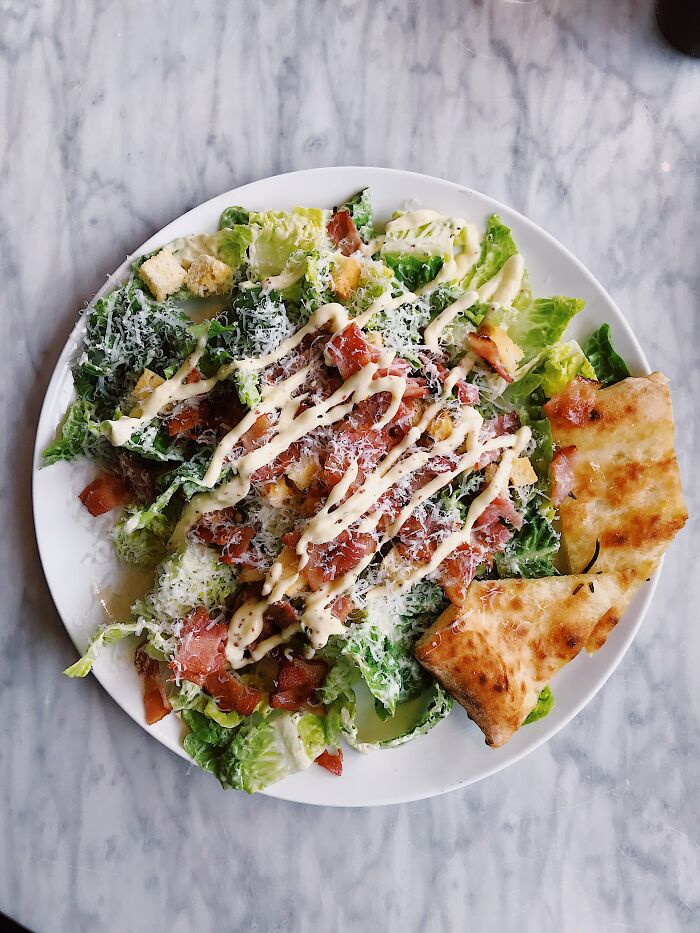
Image credits: gjones9038
#12
My uncle, who is a chef, once told me that if you keep having to add salt, try adding some citric acid instead. Honestly, it changed my life.
Image credits: 0jeezrick
In fact, the beauty of the modern internet is that a home cook from one corner of our planet can find something useful for them from a chef literally from another hemisphere - and make their dishes taste better. Way better. After all, isn't that the main idea of any human interaction - to get better? Well, maybe not everyone on Earth thinks so, but anyway, be sure to scroll this list to the very end, maybe save some interesting ideas for yourself and add your own secrets in the comments as well - in case you consider them worth sharing with other respectful cooks.
#13
Taste and season your food as you cook.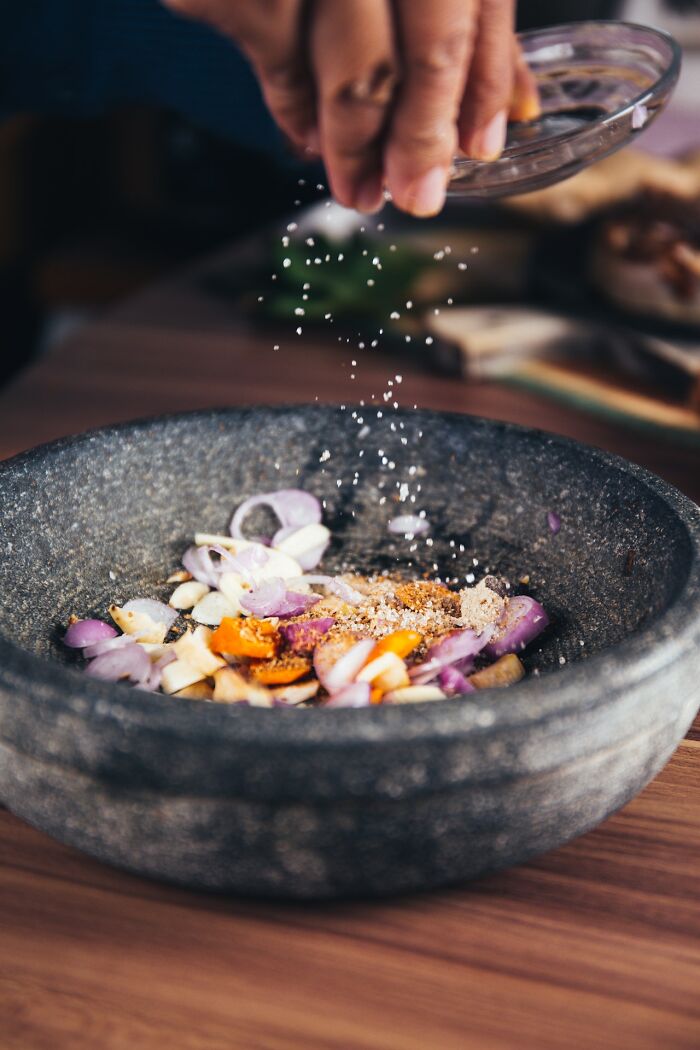
Image credits: Ooer
#14
Remember the KISS rule... Keep it simple stupid.Biggest mistake people always make is they over complicate recipes.
#15
If you've burned yourself, immediately submerge the burn in lukewarm to warm water for a couple minutes (or until the pain becomes a dull throb).It sounds insane (and feels terrible for those couple of minutes), but once you've done this the burn won't react painfully to temperature anymore. Saved my a*s the night I had boiling stew poured all over my arm and hand.
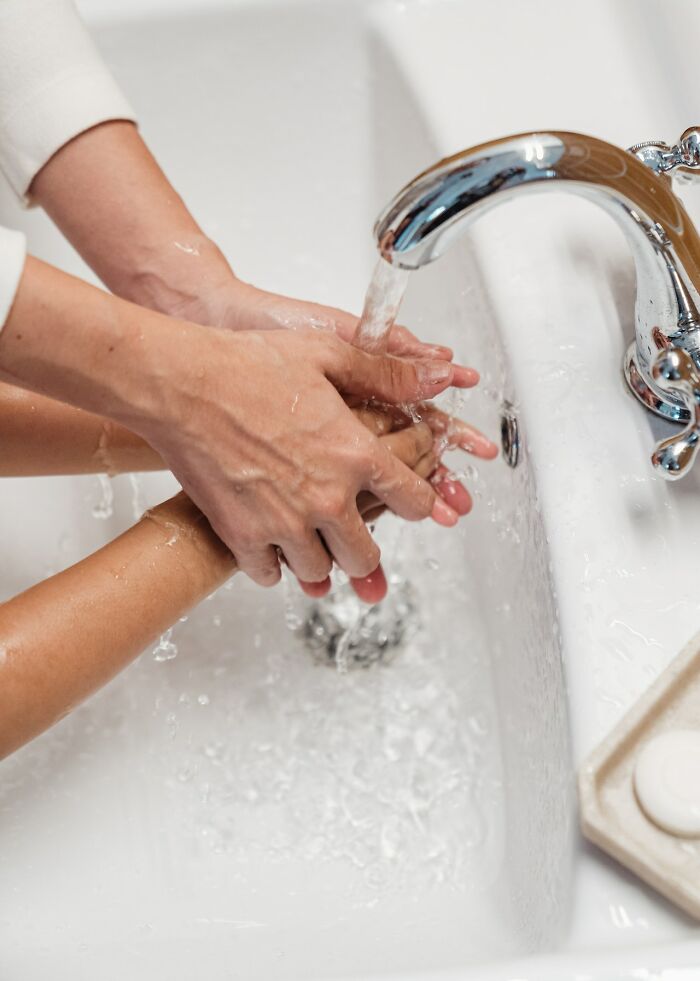
Image credits: My600lbLife
#16
Butter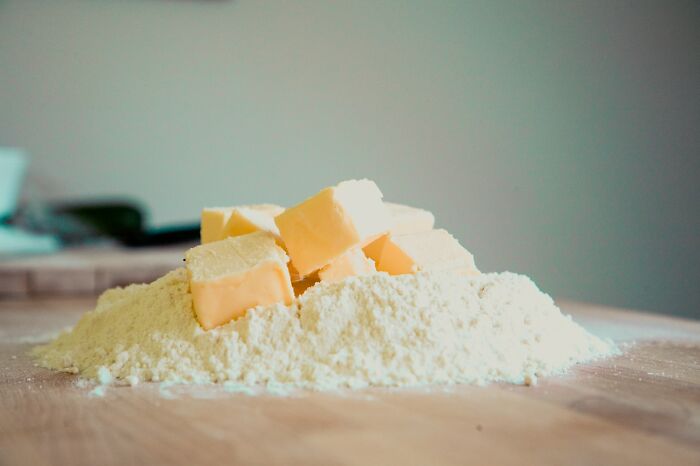
Image credits: Too_high_to_username
#17
Crack your eggs on a flat surface instead of a rim of a pan or bowl. 99% of the time, you just get two clean halves instead of tiny chipped eggshells. Also, just use the eggshell to fish any shell bits out if you mess up.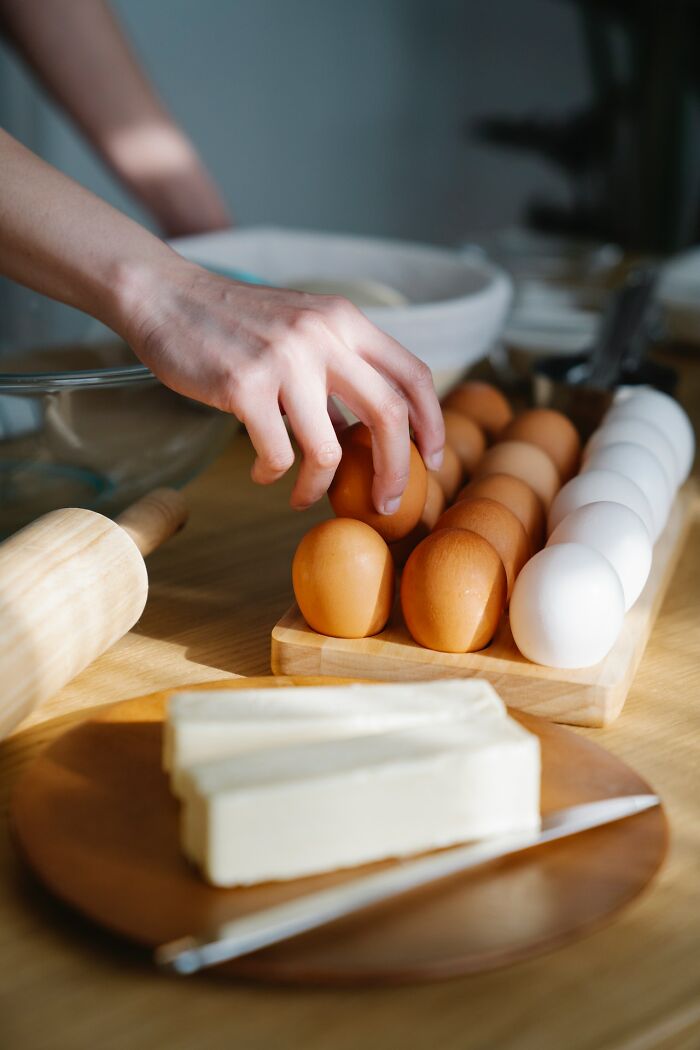
Image credits: lordoftime
#18
Drink twice as much wine as the recipe calls for. Then finish the bottle.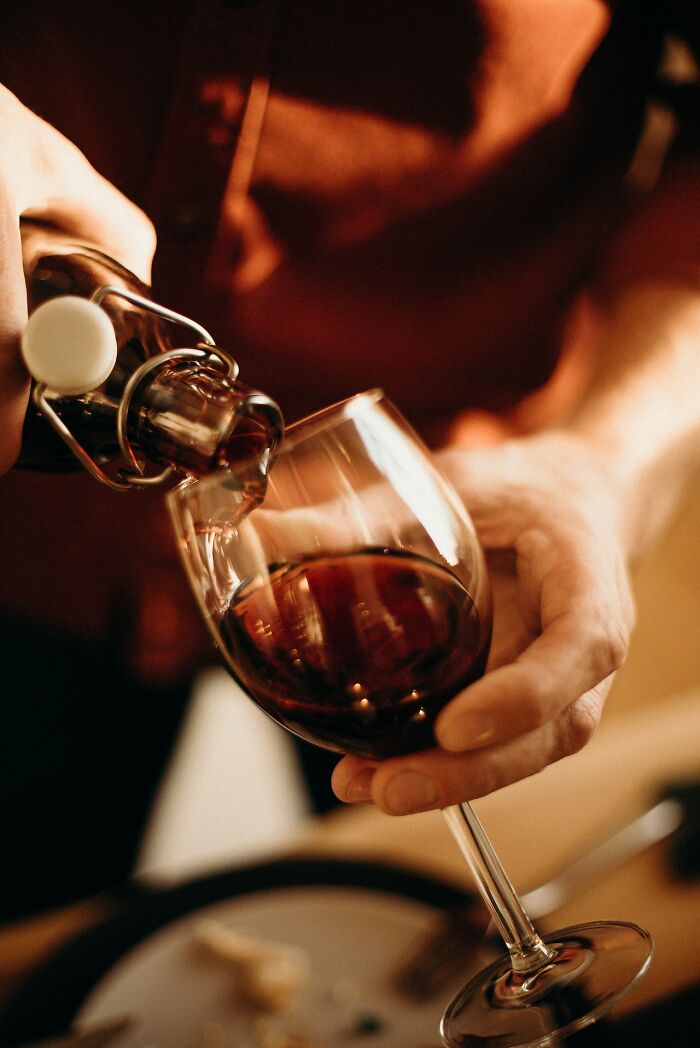
Image credits: SaturniusN
#19
when making ribs make sure that the skin on the back has been REMOVED.Toast your burger buns
heat up syrup in the microwave
let your meat settle for a little bit before eating it, the juices come back together.
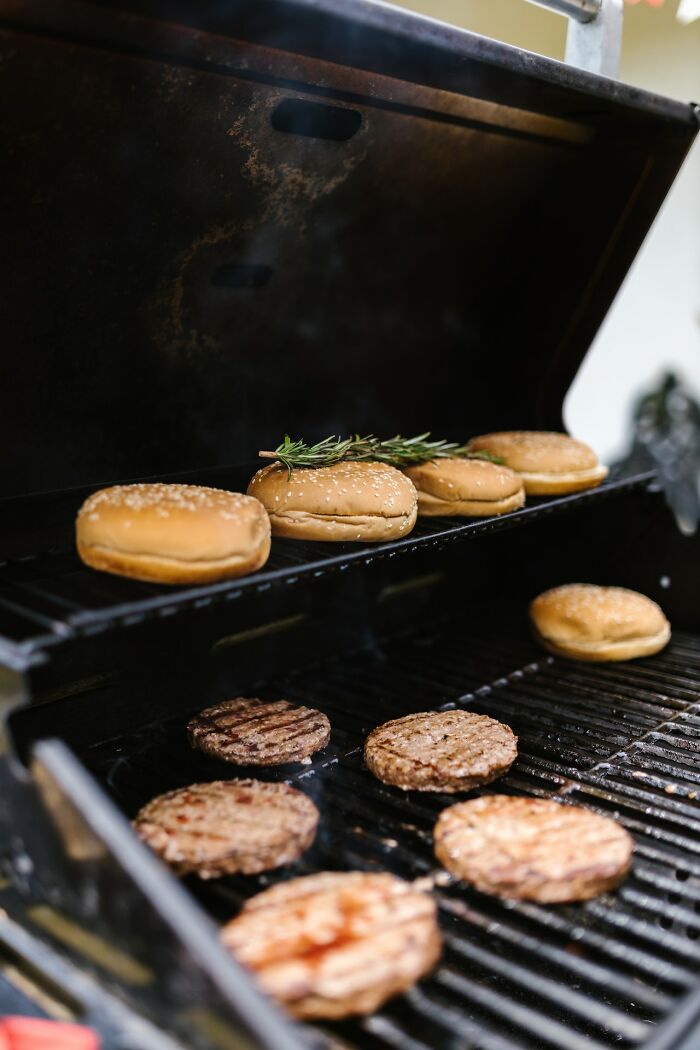
Image credits: jokemon
#20
Use a thermometer.Side note: taught my mom to use a thermometer and last night she was flipping out bc even after an hour, the pork chops wouldn’t cook! So make sure it’s on F and not C if you use a digital thermometer.
#21
Cook with someone you love. I've spent some of the best afternoons of my life in the kitchen with my wife.
Image credits: HCEarwick
#22
Take your time to cut your vegetables into similar shape/sizes - it will help them cook at a similar speed. But also understand that a small dice potato and a small dice onion will not cook at the same speed. A good rule of thumb is the harder or denser the vegetable, the longer it will take to cookCook bacon in your oven....seriously.
Salt your food. 9 times out of 10 your food sucks because you didn't season it correctly. People can be a little shocked at how much salt is required for good food. Goto a restaurant with an open kitchen and watch the cooks season their food.
Acid is also super critical for balanced food. If you have seasoned well and it still tastes flat, add some lemon juice or vinegar
Salt and acid are just as important in pastry - and often overlooked, which is why desserts are usually pretty MEH (or at least not as impactful as savory food).
Any recipe that does not have salt written in it assumes you know to add salt.
Finishing salt and/or acid is just as important.
If the meat you are searing is stuck to your pan - either you put it on when the pan was too cold or its not done searing. It will lift off easily when then happens.
A good way to know your pan is hot enough - add oil, crank the heat, once the oil looks like its rippling a bit and you see the first wisp of smoke - add your protein (presentation side down). Once you start seeing the correct color just creeping up the side of the meat - its probably seared. To be clear - this isnt any color change, but rather once you see that nice golden brown color.
Many times cooks will sear their proteins (presentation side down) and as soon as they see that color creeping up / are confident the sear is good - they take the pan off the heat and throw the whole thing (no rubber handles!) into the oven (350 or higher) to finish cooking through.
Fat holds flavor well. In baking - add your aromatics to your butter (your extracts, zests, flavoring) and it will come through more clearly.
Your bread sucks because you're under proofing it. Ignore the timeline in your recipe and don't bake it until it is actually ready!
Read through your recipe and mentally cook the dish. It will help you recognize the process and let you break free from following the recipe so closely. Eg - the recipe says sear your fish 2 min on high - you do that and realize....maybe my filet is thicker, maybe my pan is colder (or hotter) - but its not done searing....ignore the recipe and listen to what you know. Even in baking, recipes are guidelines to proper techniques.
your sharp knife is not sharp. buy a honing steel (cheap on amazon) and use it EVERY time you use your knife. Buy a sharpening stone (cheap on amazon) and practice sharpening your knife (youtube is your friend). Practice sharpening with your crappy knife - then buy a good starter knife (Victorinox, MAC Superior) and treat it well. So much fatigue comes from using dull knives.
List of most used tools/my roll:
*chefs knife
*serrated bread knife
*paring knife
*microplane
*honing steel
*Y peeler
*fish spatula
*high heat rubber spatula
*4" offset spatula
*sturdy tongs
*large cooking spoon/basting spoon
*good thermometer
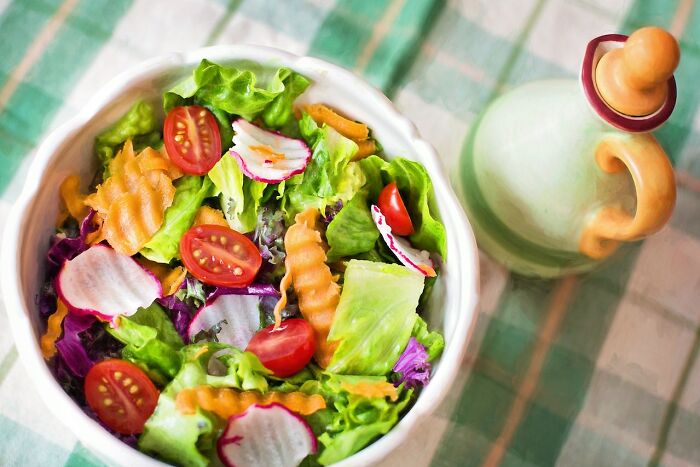
Image credits: gkern86
#23
Dry your meat.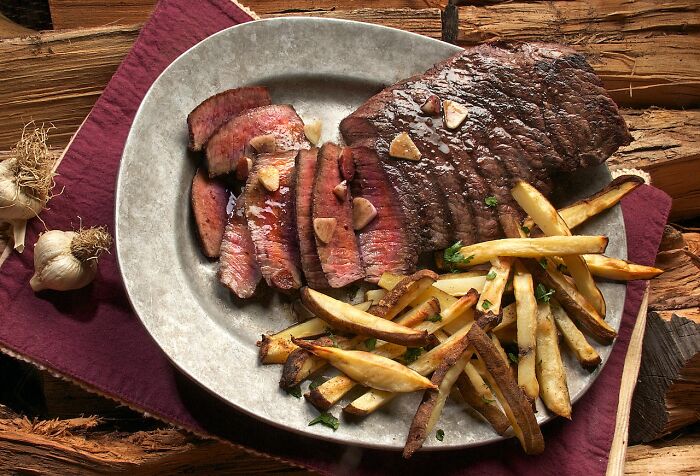
Image credits: varro-reatinus
#24
The earlier you salt. The more natural flavor it'll extract.#25
Always make more than you think you'll need. If you didn't get enough to eat it's harder to make more than it is to save leftovers.#26
Sometimes use lemon salt (aka citric acid) instead of salt, and use a little more butter than the food needs#27
Lots of good tips in the comments, as usual with this question.I'll add this: place a damp towel between your cutting board and counter top to prevent the board from slipping. If you'd prefer not to use anything with water, get some of that non-slip shelf liner stuff and cut it to size.
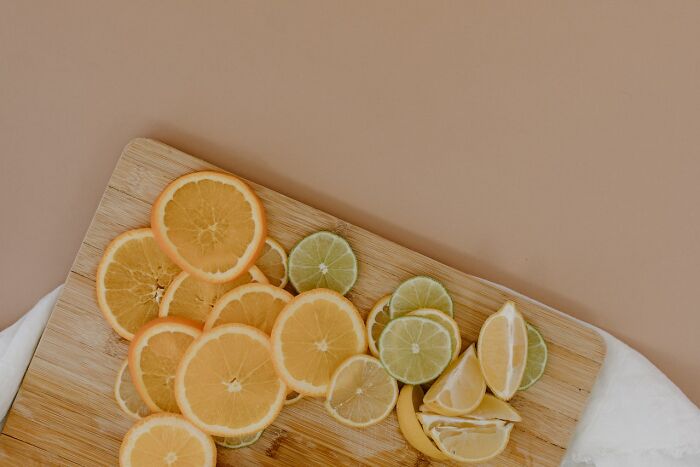
Image credits: Iamnotthefirst
#28
You'd be surprised how few beginners fail to pre-heat the oven.#29
Put music on.
Image credits: Lympwing2
#30
I lived with a top tier chef for about a year. The single most important thing I learned from him was to keep asking yourself *why*. Why have you got the heat that level? Why are you putting in that particular spice at this stage? Why are you adding these things together? What is actually going to happen? There were a lot of times when he'd walk into the kitchen and I'd be doing something simple and he'd just say "why are you cutting the vegetables like that?" or "why are you adding the feta to the salad now, what is that going to do to the vegetables?"It sounds simple, but all I was doing beforehand was going by an "I reckon these things would taste good" kind of angle without critically thinking about the logic of each action. With the vegetable example, I hadn't really thought about the difference in how quickly garlic would cook if I was adding it as a mince paste vs if I was adding it in chunks - too often I'd burn the garlic without even knowing it. I hadn't thought about how feta is really salty and salt draws out moisture almost instantly and can cause lettuce to wilt and go soggy. That kind of thing really really matters.
So basically the tip I learned was to keep questioning everything you're doing and break it down logically, like you would if you were building a shelf.
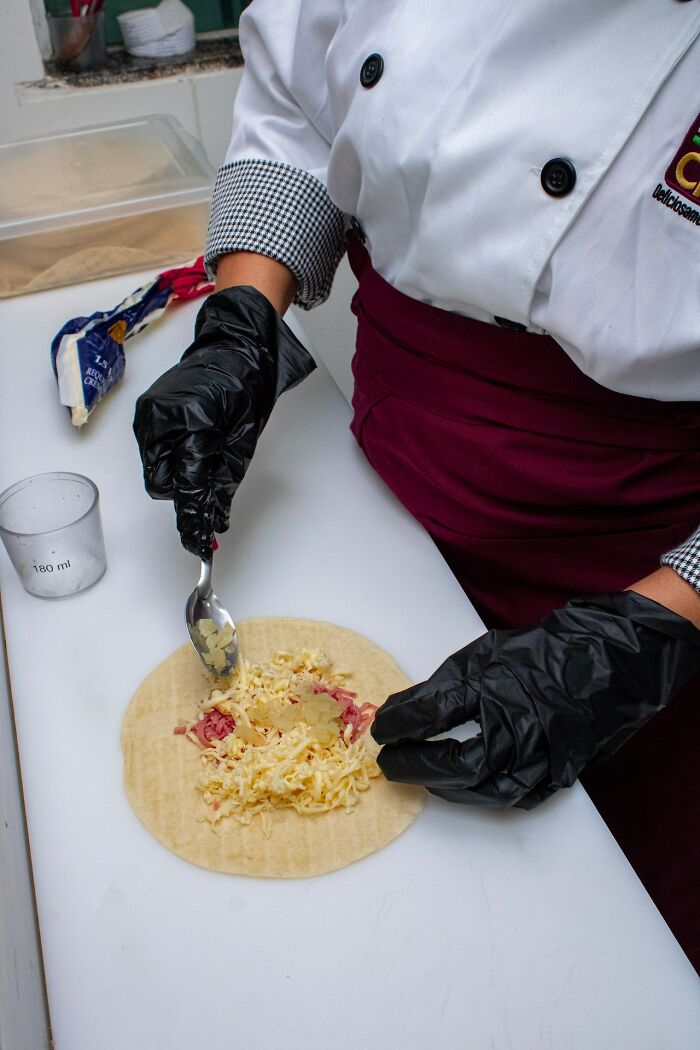
Image credits: anon
#31
never confuse hot mexican chilli powder and cinnamon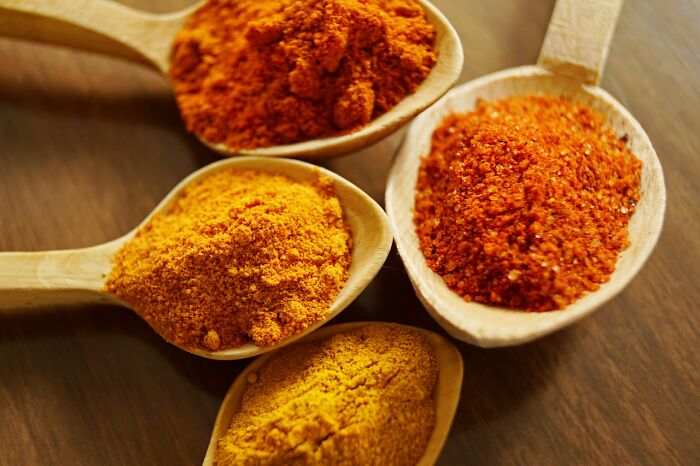
Image credits: anon
#32
When cutting, cut from the base (just above the handle, the broad part) and move the knife down forward towards the tip of the knife. Don't cut tip-first.We all know "just the tip" is never good enough.
#33
Contol your heat.#34
Paprika makes everything at least 10% fancier.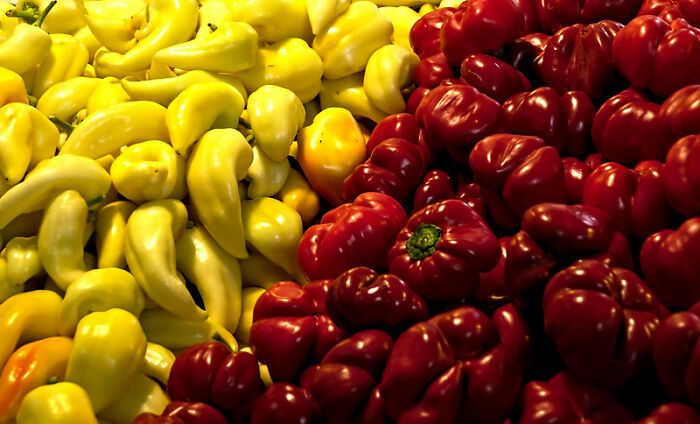
Image credits: Facky
#35
Not a chef, but I microwave hot pockets with a medium/low power setting to avoid lava scalding my mouth.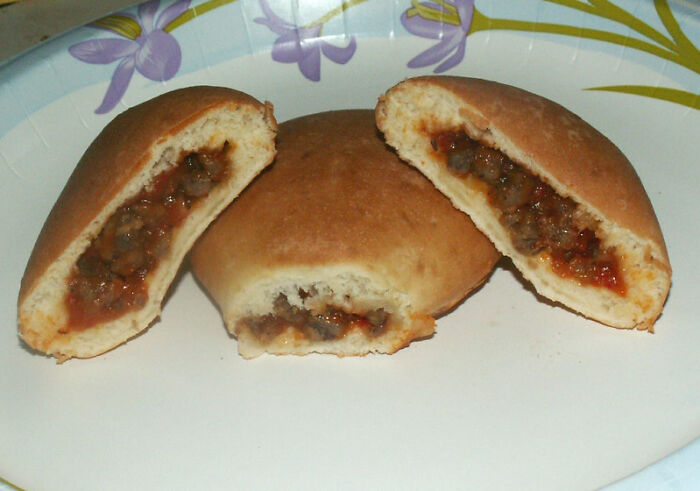
Image credits: TurnNburn
#36
Start everything with garlic and olive oil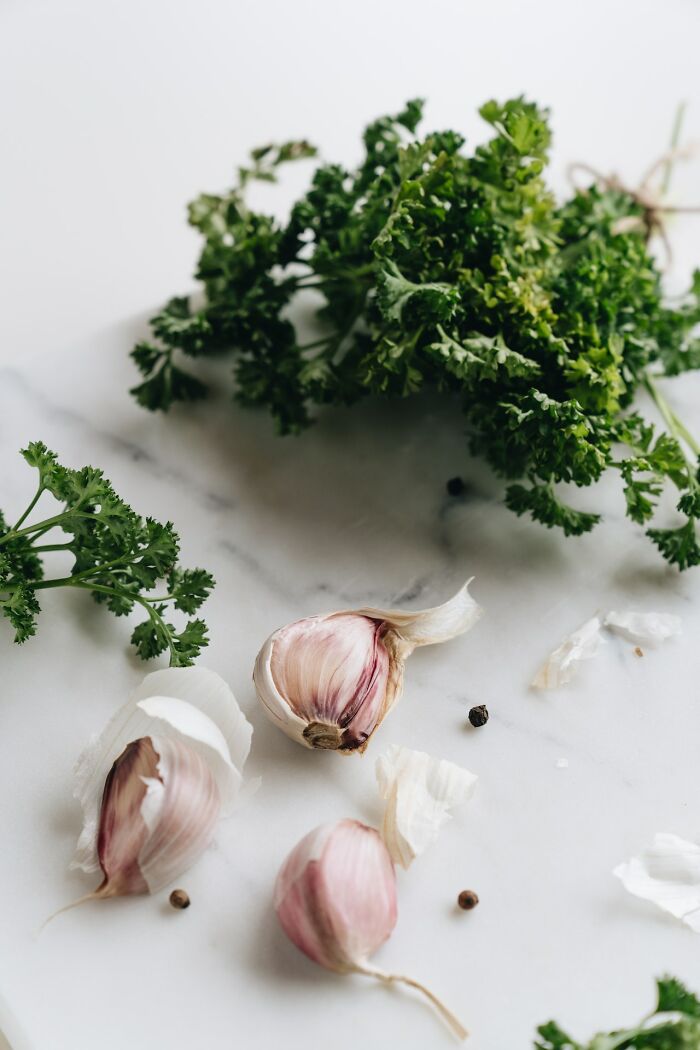
Image credits: NNHSHusky
#37
Meringues are dead simple to make (assuming you have an electric mixer or Arnold Schwarzenegger arms). 1/4 cup sugar for every egg white, add some vanilla, beat the s**t out of it until stiff/glossy, then bake at 300 degrees for a long-a*s time. Impresses the s**t out of people and is hard to actually f**k up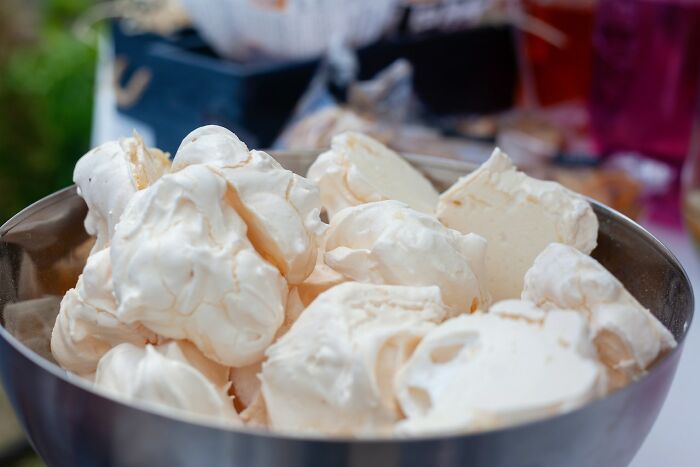
Image credits: PM_ME_RABID_BUNNIES
#38
You don't microwave a salad.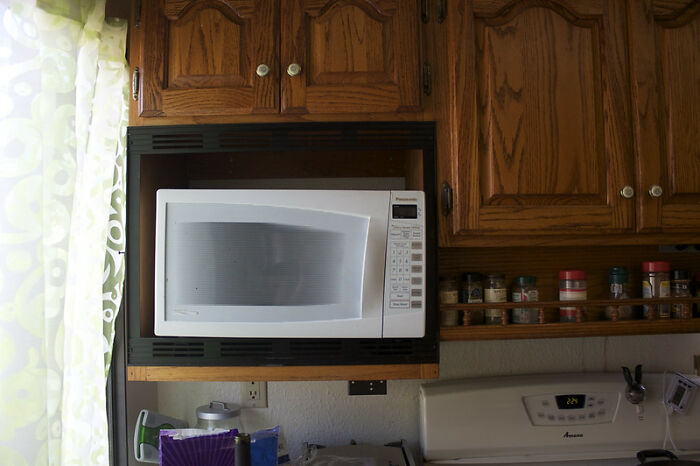
Image credits: TheF0CTOR
#39
High temperature for searing / broiling, everything else you cook at low temperature. Better control, greater margin for error.#40
Give it time.There is a *universe* of difference between something you spent an hour in the kitchen with and one of those Rachel Ray 20 minute abominations.
#41
Roast peppers and then blend them and add to soup#42
Use an acid to pop it and never skimp on quality of salt#43
If you leave milk out, it will go sour. Put it in the refrigerator or, failing that, a cool wet sack.#44
Keep some superglue handy when you need to seal a wound in a hurry.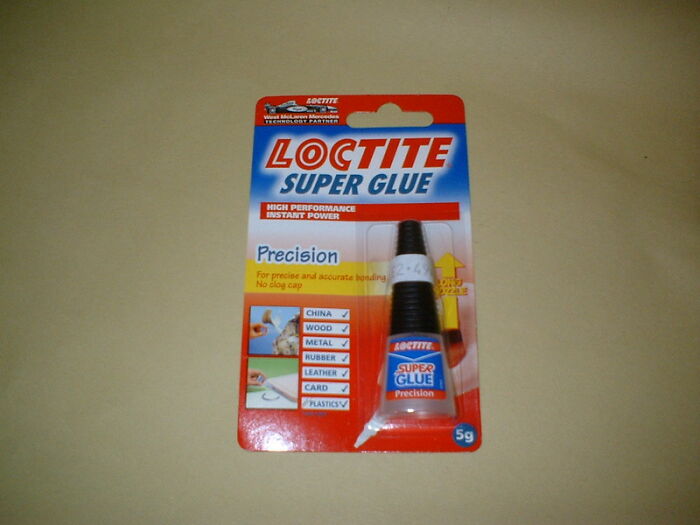
Image credits: anon

Leave a comment